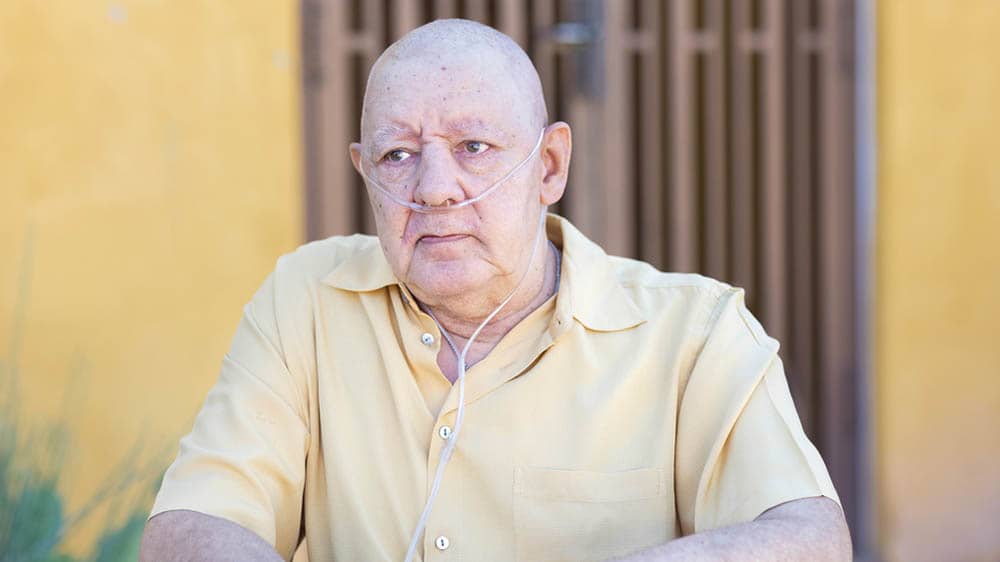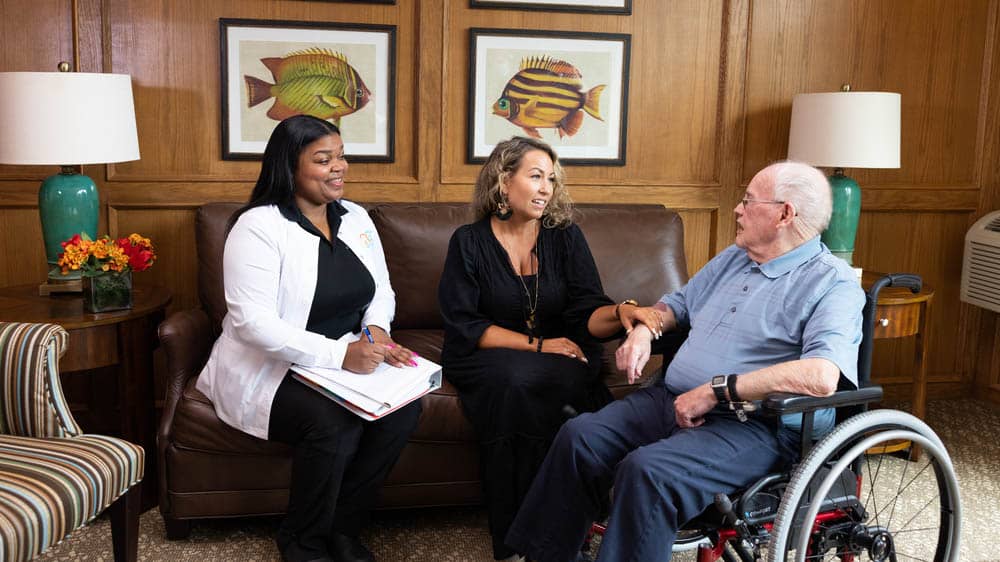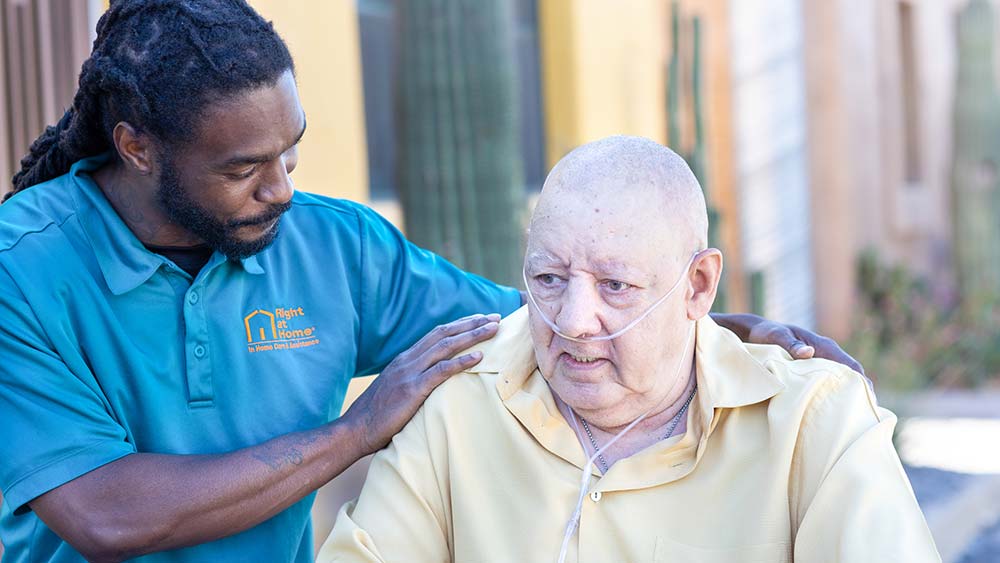

How To Have End-of-Life Conversations With Aging Loved Ones
Karen’s elderly mother was recently rushed to the hospital, where the ER doctor determined she had pneumonia. Karen was able to answer the standard questions about her mother’s health; however, she was stumped when asked if her mother had a living will and realized she had no idea what her mother’s end-of-life wishes were.
If you are like Karen and don’t know what your elderly loved one’s wishes are, it’s time to have the conversation.
Why Most Avoid Planning
According to a study published in the Journal of Psychosocial Nursing and Mental Health Services, 90% of people say that talking with their loved ones about end-of-life care is important, but only 27% have done so. Without this information, an older adult may end up not having a say in their future and be subject to situations they wouldn’t want. It also puts tremendous strain and stress on those who have to guess what would be wanted.
Starting the conversation can be difficult. Many aging adults don’t think they are close to dying and may be hesitant to talk about their death. In an emergency like Karen experienced with her mother, your parent likely won’t be able to communicate or may not be able to communicate effectively enough to feel confident in their answer.
Making your loved one feel comfortable and you feel prepared is important.
Preparing for the Conversation
You may not get a second opportunity to have this conversation, so it’s a good idea to be prepared. Here are some examples of questions you might want to ask:
Physical Care
- Do you want to be resuscitated if you stop breathing or your heart stops beating?
- Do you want to be intubated if your breathing slows?
- How do you feel about having a feeding tube?
- Do you want all life-saving measures taken to prolong your life?
- Do you want to die in a hospital or at home?
- Do you want to die alone or surrounded by family and friends?
Financial
- Do you have a will that identifies the executor?
- Where is your will located?
- Can you share the executor’s username and password for accessing the will?
- Where are your investments, checking accounts, and savings accounts, and what are the usernames and passwords for accessing them?
- Where are your insurance documents and other important documents?
- Which institution holds your mortgage? Or, if the home is paid for, where is the deed?
- Can you provide a list of monthly bills? Do you pay online or by mail?
Remembrance
- Do you want a service, and if so, where?
- Do you want a burial or cremation?
- Where do you want to be buried or have your ashes scattered?
- Who would you like to be notified?
Ideas for Getting the Conversation Started
Once you have decided what you need to know, it’s time to have the conversation with your aging loved one. Sometimes, the opportunity presents itself during everyday conversations. Here are some ways to prompt a discussion:
- When remembering a deceased relative or friend in conversation, you could offer your end-of-life wishes and ask what theirs are.
- When you have some time alone with your loved one, you might offer that you have written a living will listing what your wishes are in a medical emergency or terminal illness and how you would like to be remembered. Revealing your wishes may prompt them to discuss theirs.
- Possibly start the conversation by telling a story about a co-worker whose father died from a terminal illness without knowing his wishes. State you would never want that for your loved one. Assure them that you know their death is a long way off, but understanding their wishes would reassure you that you’d know what to do.
5 Tips for Having the End-of-Life Conversation
It probably won’t be easy, but being prepared and thinking about these tips ahead of time will help:
- Find a comfortable environment to have the conversation.
- Start with questions about your loved one’s medical care and their wishes regarding prolonging life.
- Discuss where and with whom they want to spend their final moments.
- Prepare a list of information you will need to take care of your loved one’s finances.
- Talk about how they want their life celebrated after they are gone.
For more suggestions and ideas on what to discuss with your loved one, visit AARP.
How Right at Home Can Help
Right at Home’s trained and insured/bonded caregivers can help older adults stay independent in their homes by providing a wide range of services, including companionship/homemaking, personal care, and respite for the family caregiver. Use our office locator to contact the office nearest you for more information.
Communication barriers can be challenging for family caregivers. Conflicts within the family and communication gaps with health care providers can lead to frustration and stress in the caregiving cycle. Right at Home offers a FREE RightConversations Guide to help families have difficult conversations along the aging journey. Download your FREE copy today.







